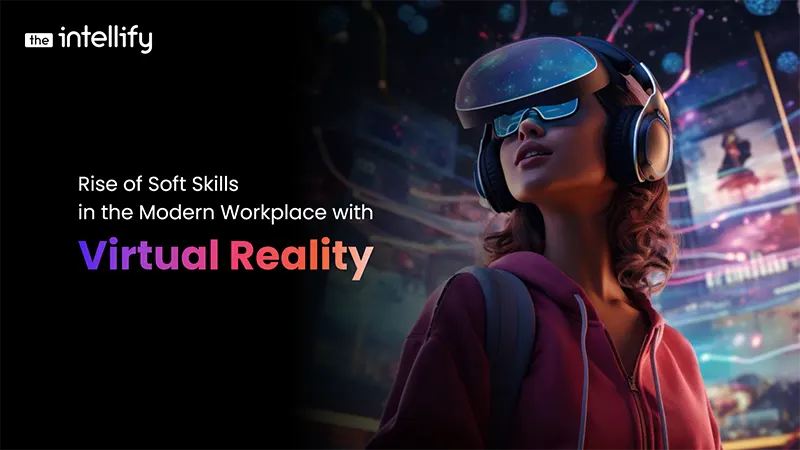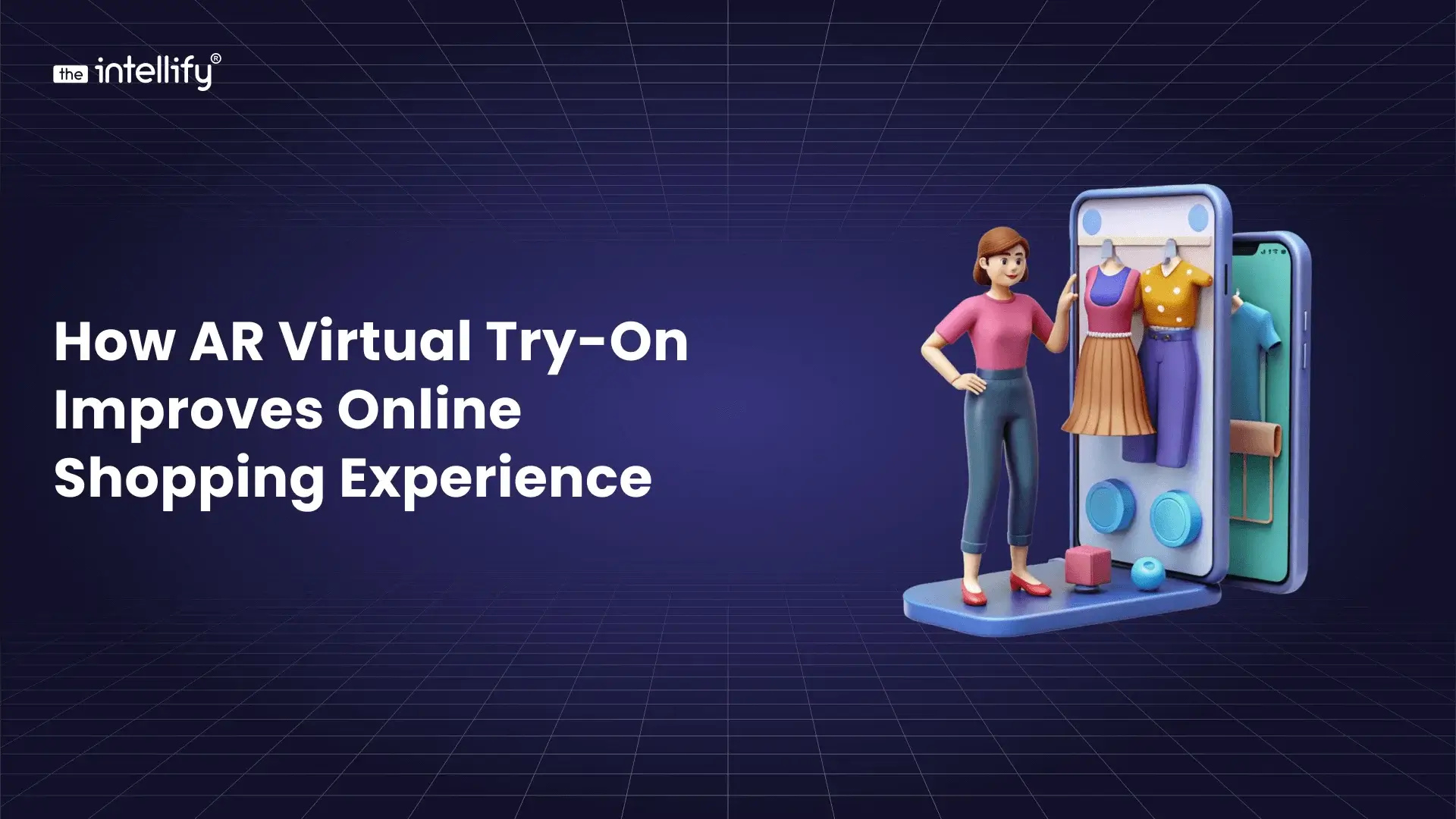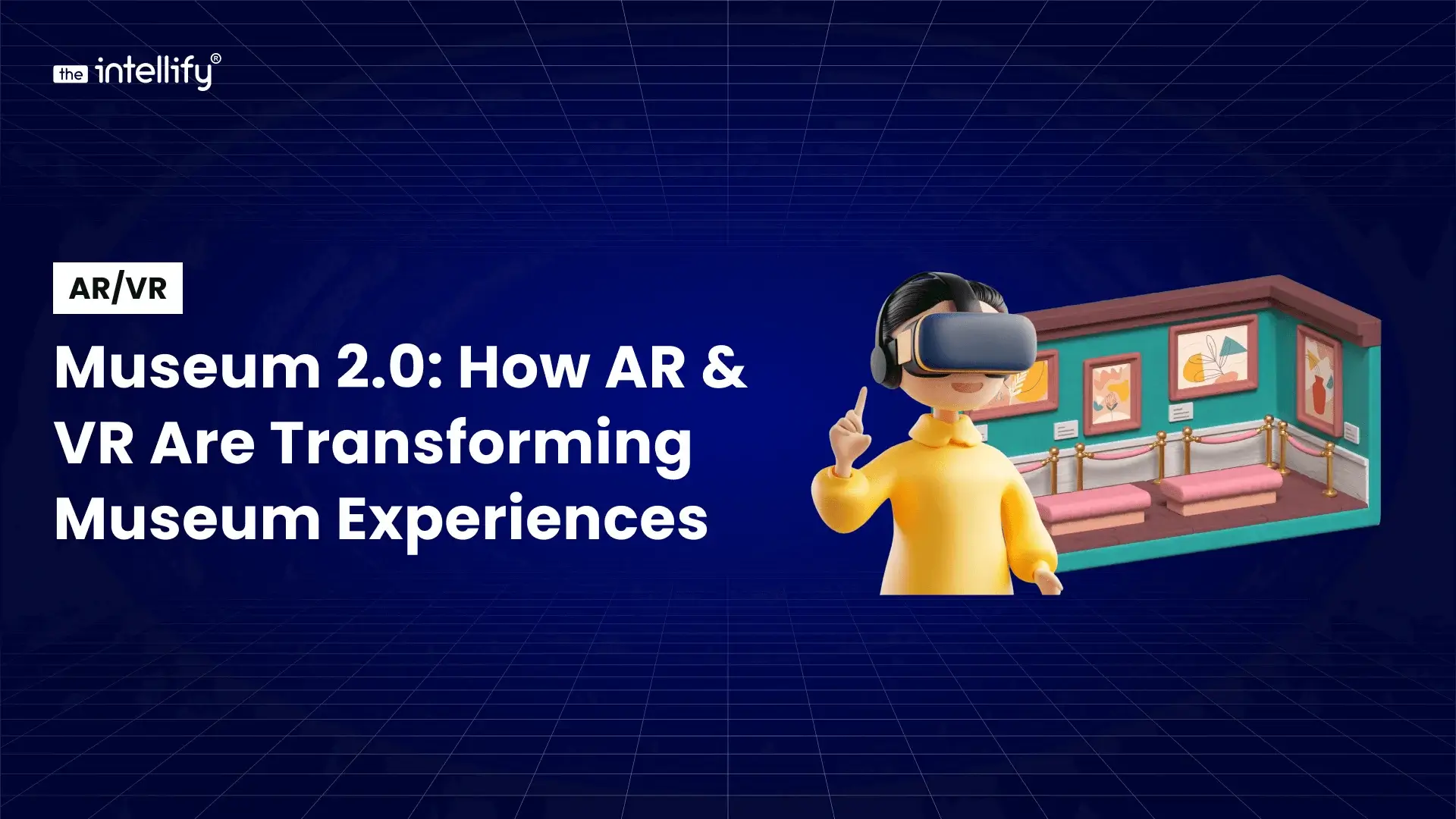Rise of Soft Skills in Modern Workplace with Virtual Reality

By Darshak Doshi
October 3, 2023

Summary
As AI and automation continue to reshape industries, soft skills have become crucial for personal and professional growth. Virtual Reality app development is transforming soft skill development by providing immersive simulations that allow learners to practice communication, leadership, emotional intelligence, and problem-solving in a safe, personalized environment. Despite some challenges, VR app development offers a unique, engaging way to enhance these skills, breaking down geographical barriers and fostering effective team collaboration.
Introduction
The value of soft skills has never been higher before, like now with the rise in industrial transformation with AI and automation on the rise. In a world where machines have started handling many routine tasks, it’s the densely human capabilities that set individuals apart. Soft skills are the skilled building blocks of effective collaboration, innovation, and leadership.
In today’s evolving and revolutionized technology-driven world, soft skills have become just as crucial and demanding as technical skills for personal and professional graphs. Traditional methods of soft skill development have often started falling short of delivering effective and engaging training experiences.
Skills including communication, teamwork, adaptability, problem solving, and emotional intelligence are essential in the workplace and play a significant role in building and maintaining relationships.
To enhance these skills, to enhance the learning and development of these skills, virtual reality has brought in a transformation. A cutting-edge technology in demand that is revolutionizing soft skill training.
Statistics on the Rise of Soft Skills
A recent study by the World Economic Forum revealed that by 2025, 42% of core skills required to perform most jobs will shift, with a significant focus on human-centric soft skills. Furthermore, 74% of employees believe that soft skills are crucial for workplace success, according to a LinkedIn survey. This highlights the growing importance of integrating soft skill training into modern work environments, making VR-based learning an ideal solution.
The Intellify, with an immense experience of developing immersively engaging virtual reality solutions, would like to share 4 beliefs on how VR can be a game-changer for soft skill development. Have a look:
Realistic Simulations for Effective Learning
Virtual reality lets trainees and learners immerse themselves in realistic scenarios that mime real-life situations through a VR device or solutions. Whether it’s a customer service interaction, a team meeting, or a negotiation. VR can create a replica of any of these scenarios to create a lifelike, interactive, engaging training environment. This realism helps learners practice and develop their soft skills in a low-stakes setting.
Safe Learning Environment to Boost Confidence
Virtual reality provides a safe space where learners can experiment, fail, and refine their skills without real-world consequences, judgements, and expected parameters. This can boost learners’ confidence and willingness to take risks in their actual work environments.
Personalized Learning for Tailored Development
VR can be adapted by different learners being at their own pace and preferences. It can provide immediate feedback and track progress, also offering customized training modules based on individual needs with their strengths and weaknesses. This personalized approach ensures learners and trainees receive targeted training to enhance specific soft skills.
Overcoming Barriers in Global Training
Virtual reality eliminates geographical and logistic barriers, allowing learners and trainees from different locations to engage in immersive and engaging training experiences simultaneously. This choice of training tool makes the learning an excellent choice for remote teams and multinational organizations.
What is the power of virtual reality in any aspect of industrial experience?
Virtual reality is an immersive technology that transports users to computer-generated environments, making them feel as though they are physically present in a different place. VR solutions are becoming increasingly accessible and affordable, making them a valuable tool for soft skill training.
While virtual reality offers all these above-stated benefits for soft skills, there are very few challenges to be considered:
- Cost: Implementing VR training can be expensive, from acquiring the hardware and software to developing customized content.
- Technical Requirements: Learners need access to VR equipment, which may not be readily available to everyone.
- Content Development: Creating effective VR soft skill training content requires specialized expertise in both the subject matter and VR technology.
- Motion Sickness: Some individuals may experience motion sickness in VR, limiting their ability to engage fully.
Applications of VR in Soft Skill Training
Virtual reality can be applied to various aspects of soft skill training, as listed below applications. The Intellify proudly takes all the credits for the application developments with the utmost creative and skilled designers and developers in the house:
Communication Skills
In VR, participants (learners and trainees) can engage in virtual conversations and presentations. You can practice active listening, effective speaking, and non-verbal communication in a realistic environment. Immediate feedback from the VR system or an instructor helps learners refine their communication skills.
Leadership & Teamwork
VR can help in simulating team projects, leadership scenarios, and conflict resolution exercises. Learners and trainees can take on different roles within a team and navigate complex interpersonal dynamics, fostering leadership and teamwork skills.
Emotional Intelligence
VR can help you create an environment that challenges you as a learner to manage their emotions and empathize with others. These VR environments may involve dealing with difficult customers, resolving conflicts, or providing emotional support to colleagues.
Decision Making & Problem Solving
Complex decision-making situations can be replicated in virtual reality, allowing you as a learner to practice critical thinking and problem-solving skills. You can explore different solutions and consequences in a risk-free environment without fearing any repercussions.
Conclusion
Virtual Reality is reshaping the future of soft skill training by offering realistic simulations, a safe learning environment, and personalized experiences that cater to individual needs. As technology continues to evolve, VR-based training programs are becoming a crucial part of workforce development, helping organizations foster collaboration, leadership, and innovation.
The Intellify believes that the integration of VR in soft skill training will play a pivotal role in shaping the leaders of tomorrow. Companies investing in VR solutions for soft skill development will not only see enhanced employee performance but also gain a competitive edge in a rapidly evolving marketplace. Contact us today for a customized VR training solution designed to meet your unique requirements.

Written By, Darshak Doshi
With over a decade of experience, Darshak is a technopreneur specializing in cloud-based applications and product development in healthcare, insurance, and manufacturing. He excels in AWS Cloud, backend development, and immersive technologies like AR/VR to drive innovation and efficiency. Darshak has also explored AI/ML in insurance and healthcare, pushing the boundaries of technology to solve complex problems. His user-focused, results-driven approach ensures he builds scalable cloud solutions, cutting-edge AR/VR experiences, and AI-driven insights that meet today’s demands while anticipating future needs.


AI in AR & VR: Redefining Intelligent Immersive Experiences
Summary: AI is making AR and VR smarter, turning static experiences into adaptive, personalized environments. From training and healthcare to retail and gaming, intelligent immersive systems are improving engagement, learning, and decision-making. This blog explores how AI is shaping the future of immersive technology across industries. In a world where technology is changing faster than […]


How AR Virtual Try-On Improves Online Shopping Experience
Summary: AR virtual try-on is reshaping online shopping by letting customers preview products on themselves or in their real environment before purchasing. This guide breaks down how virtual try-on works, the technology behind it, and where it’s used across e-commerce. It also explores business and customer benefits, development steps, key challenges, and how virtual try-on […]


Museum 2.0 Solutions: How AR & VR Are Transforming Museum Experiences
Summary: Museum 2.0 solutions are reshaping museum experiences through augmented reality (AR) and virtual reality (VR). Museums are using immersive technology to engage visitors, improve storytelling, and extend access beyond physical spaces. The blog covers how AR and VR support learning, enhance visitor interaction, and address modern challenges, along with practical use cases and considerations […]


AI in AR & VR: Redefining Intelligent Immersive Experiences
Summary: AI is making AR and VR smarter, turning static experiences into adaptive, personalized environments. From training and healthcare to retail and gaming, intelligent immersive systems are improving engagement, learning, and decision-making. This blog explores how AI is shaping the future of immersive technology across industries. In a world where technology is changing faster than […]


How AR Virtual Try-On Improves Online Shopping Experience
Summary: AR virtual try-on is reshaping online shopping by letting customers preview products on themselves or in their real environment before purchasing. This guide breaks down how virtual try-on works, the technology behind it, and where it’s used across e-commerce. It also explores business and customer benefits, development steps, key challenges, and how virtual try-on […]


Museum 2.0 Solutions: How AR & VR Are Transforming Museum Experiences
Summary: Museum 2.0 solutions are reshaping museum experiences through augmented reality (AR) and virtual reality (VR). Museums are using immersive technology to engage visitors, improve storytelling, and extend access beyond physical spaces. The blog covers how AR and VR support learning, enhance visitor interaction, and address modern challenges, along with practical use cases and considerations […]
0
+0
+0
+0
+Committed Delivery Leads To Client Satisfaction
Client Testimonials that keep our expert's spirits highly motivated to deliver extraordinary solutions.

















